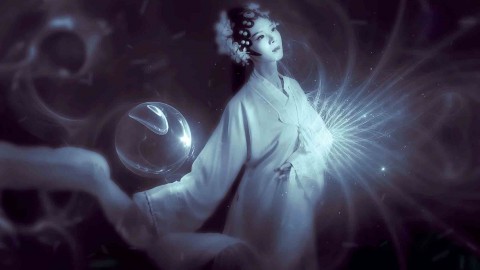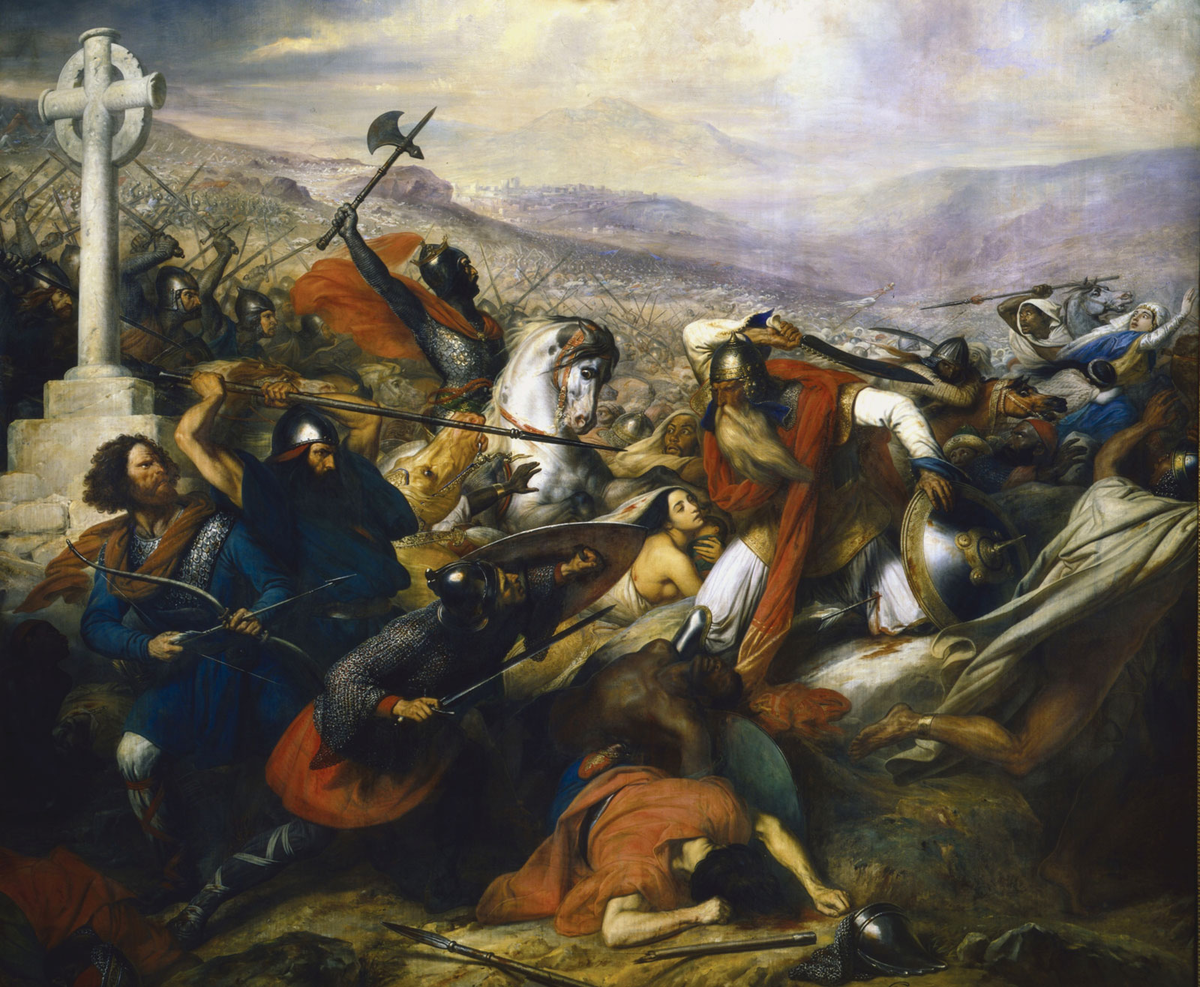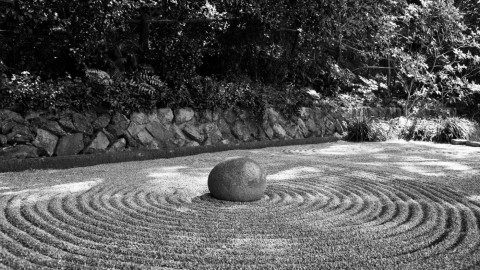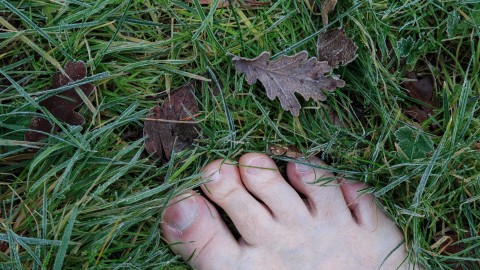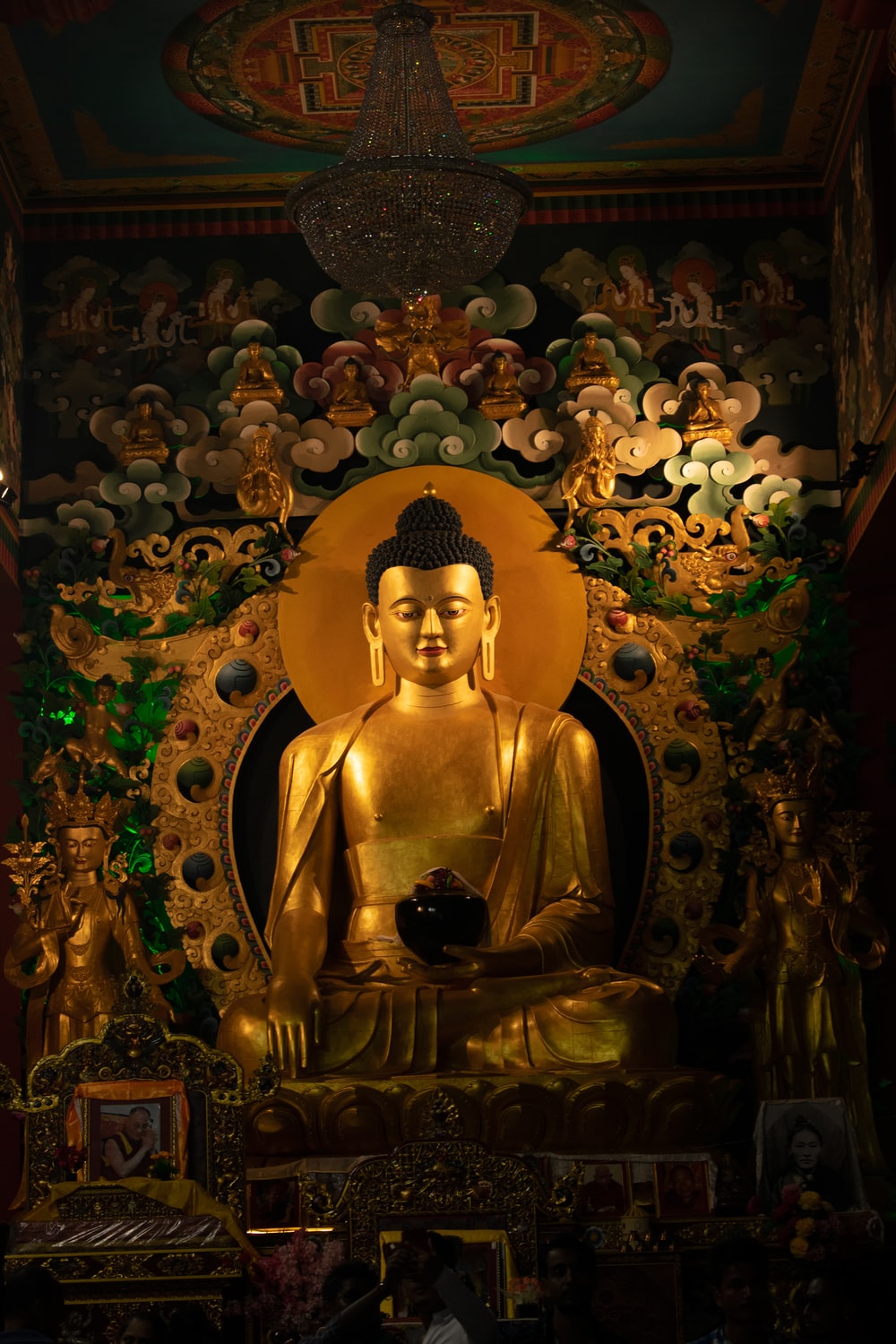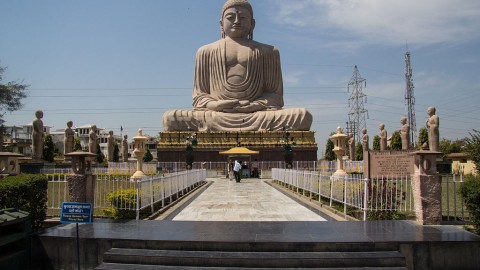Before we enter into Yoga Sutra 19, we need to understand The Theory Of Karma.
MAN APPEARS to be in the present, but that is only an appearance. Man lives in the past. Through the present he passes, but he remains rooted in the past. The present is not really time for the ordinary consciousness. For the ordinary consciousness, the past is real time, the present just a passage from the past to the future, just a momentary passage. The past is real and the future also, but the present is unreal for the ordinary consciousness. Future is nothing but the past, extended. Future is nothing but the past projected again and again.
The present seems to be non-existential. If you think of the present, you will not find it at all because the moment you find it, it has already passed. Just a moment before when you had not found it, it was in the future. For a Buddha – consciousness, for an awakened being, only the present is existential. For ordinary consciousness, unaware, sleepy like a somnambulist, the past and future are real, the present is unreal. Only when one awakes is the present real; the past and future both become unreal.
Why is this so? Why do you live in the past? – Because the mind is nothing but an accumulation of the past. Mind is memory: all that you have done, all that you have dreamed, all that you wanted to do and could not do, all that you have imagined in the past, is your mind. Mind is a dead entity. If you look through the mind, you will never find the present, because the present is life, and life can never be approached through a dead medium. Life can never be approached through dead vehicles. Life cannot be touched through death.
Mind is dead. Mind is just like dust gathering on a mirror. The more dust gathers, the less the mirror is, mirror like. And if the layer of dust is very thick, as it is on you, then the mirror does not reflect at all.
Everybody gathers dust. Not only do you gather, you cling to it, you think it is a treasure. The past is gone; why do you cling to it? You cannot do anything about it. You cannot go back, you cannot undo it. Why do you cling to it? It is not a treasure. And if you cling to the past and you think it is a treasure, of course your mind will want to live it again and again in the future. Your future cannot be anything but your modified past – a little refined, a little more decorated. But it is going to be the same because the mind cannot think of the unknown; the mind can only project the known, that which you know.
You fall in love with a woman and the woman dies. Now how are you going to find another woman? The other woman is going to be a modified form of your dead wife; that is the only way you know. Whatsoever you do in the future will be nothing but a continuation of the past. You can change a little – a patch here, a patch there, but the main part will remain the same, just the same.
Somebody asked Mulla Nasrudin when he was lying on his deathbed, ‘If you are again given a life, how are you going to live it Nasrudin? Would you make any changes?’ Nasrudin pondered with closed eyes, thought, meditated, then opened his eyes and said, ‘Yes, if I am again given a life, I will part my hair in the middle. That has always been my wish, but my father always insisted that I not do it. And when my father died, the hair had become so conditioned that it could not be parted in the middle.’
Don’t laugh. If you are asked what you will do again with your life, you will make slight changes just like this: a husband with a slightly different nose, a wife with a little different complexion, a bigger or smaller house; but they are nothing more than parting your hair in the middle – trivia, not essential. Your essential life will remain the same.
I look into your eyes and I see this. You have done it many, many times: your essential life has remained the same. Many times you have been given lives. You have lived many times; you are very, very ancient. You are not new on this earth, you are older than the earth because you have lived on other earths also, other planets. You are as old as existence. This is how it should be because you are part of it. You are very ancient, but repeating the same pattern again and again.
That’s why Hindus call it the wheel of life and death; ‘wheel’ because it goes on repeating itself. It is a repetition: the same spokes come up and go down, go down and come up. Mind projects itself, mind is past, so your future is not going to be anything other than the past.
And what is past? What have you done in the past? Whatsoever you have done – good, bad, this, that – whatsoever you do creates its own repetition. That is the theory of karma. If you were angry the day before yesterday, you created a certain potentiality for anger: to be angry again yesterday. Then you repeated it, you gave more energy to the anger, the mood of anger, you rooted it more, you watered it. Now today you will repeat it again with more force, with more energy. And then tomorrow you will again be a victim of today.
Each action that you do or even think about has its own ways of persisting again and again, because it creates a channel into your being. It starts absorbing energy from you. You are angry, then the mood goes and you think that you are angry no more; then you miss the point. When the mood has gone nothing has happened; only the wheel has moved and the spoke that was up has gone down.
The anger was there on the surface a few minutes ago, the anger has now gone down into the unconscious, into the depth of your being. It will wait for its time to come again. If you have acted according to it, you have reinforced it, then you have again given a lease for its life. You have given it again a power, an energy.
It is throbbing like a seed under the soil waiting for the right opportunity and season, then it will sprout.
Every action is self-perpetuating, every thought is self-perpetuating. Once you cooperate with it you are giving energy to it. Sooner or later it will become a habitual form. You will do it and you will not be the doer; you will do it just because of the force of habit. People say that habit is second nature. This is not an exaggeration. On the contrary, this is an understatement. In fact, habit finally becomes first nature and nature becomes secondary. Nature becomes just like an appendix or footnotes in a book, and habit becomes the main part, the main body of the book.
You live through the habit; that means that the habit lives basically through you.
The habit itself persists, it has an energy of its own. Of course it takes the energy from you, but you cooperated in the past, you are cooperating in the present. By and by, the habit will become the master and you will be just a servant, a shadow. The habit will give the commandment, the order, and you will be just an obedient servant. You will have to follow it.
It happened that one Hindu mystic, Eknath, was going for a pilgrimage. The pilgrimage was going to last for at least one year because he had to visit all the sacred places of the country. Of course, it was a privilege to be with Eknath, so many people, a thousand people, were travelling with him. The thief of the town also came and said, ‘I know that I am a thief and not worthy enough to be a member of your religious group, but give me a chance also. I would like to come for the pilgrimage.’ Eknath said, ‘It will be difficult, because one year is a long time and you may start stealing people’s things. You may cause trouble. Please drop this idea.’ But the thief was insistent. He said, ‘For one year I will drop stealing, but I have to come. And I promise you that for one year I will not steal a single thing from anybody.’ Eknath agreed.
But within a week trouble started, and the trouble was this: things started disappearing from people’s luggage, and even more puzzling – because nobody was stealing them – things would disappear from somebody’s bag and they would be found in somebody else’s bag after a few days. The man in whose bag they would be found would say, ‘I have not done anything. I really don’t know how these things have come to be in my bag.’
Eknath suspected, so one night he pretended to sleep but he was awake, he watched. The thief appeared near about midnight, in the middle of the night, and he started changing things from one person’s luggage to another person’s.
Eknath caught him red handed and he said, ‘What are you doing? And you had promised!’ He said, ‘I am following my promise. I have not stolen a single thing. But this is my old habit. In the middle of the night if I don’t do some mischief, it is impossible for me to sleep. And for one year, not to sleep? You are a man of compassion. You should be compassionate towards me. And I am not stealing, things are found again and again. They don’t go anywhere but are just exchanged from one person to another. And moreover, after one year I have to start my stealing again, so it will be good practice also.’
Habits force you to do certain things; you are a victim. Hindus call it the theory of karma: each action that you repeat, or each thought – because thought is also a subtle action in the mind – becomes more and more powerful. Then you are in the grip of it. Then you are imprisoned in the habit. Then you live the life of an imprisoned man, a slave. And the imprisonment is very subtle: it is of your habits and conditioning and the actions that you have done. It is all around your body and you are entangled in it, but you go on thinking and befooling yourself that you are doing it. When you get angry, you think you are doing it. You rationalize it and you say that the situation demanded it: ‘I had to be angry, otherwise the child would go astray; if I were not angry then things would go wrong, then the office would be in a chaos, then servants won’t listen; I had to be angry to manage things, to discipline the child. To put the wife in her right place I had to be angry.’ These are rationalizations. That’s how your ego goes on thinking that you are still the boss, but you are not. Anger comes out of old patterns, out of the past. And when anger comes you try to find an excuse for it.
Tags: Patanjali The Theory Of Karma

